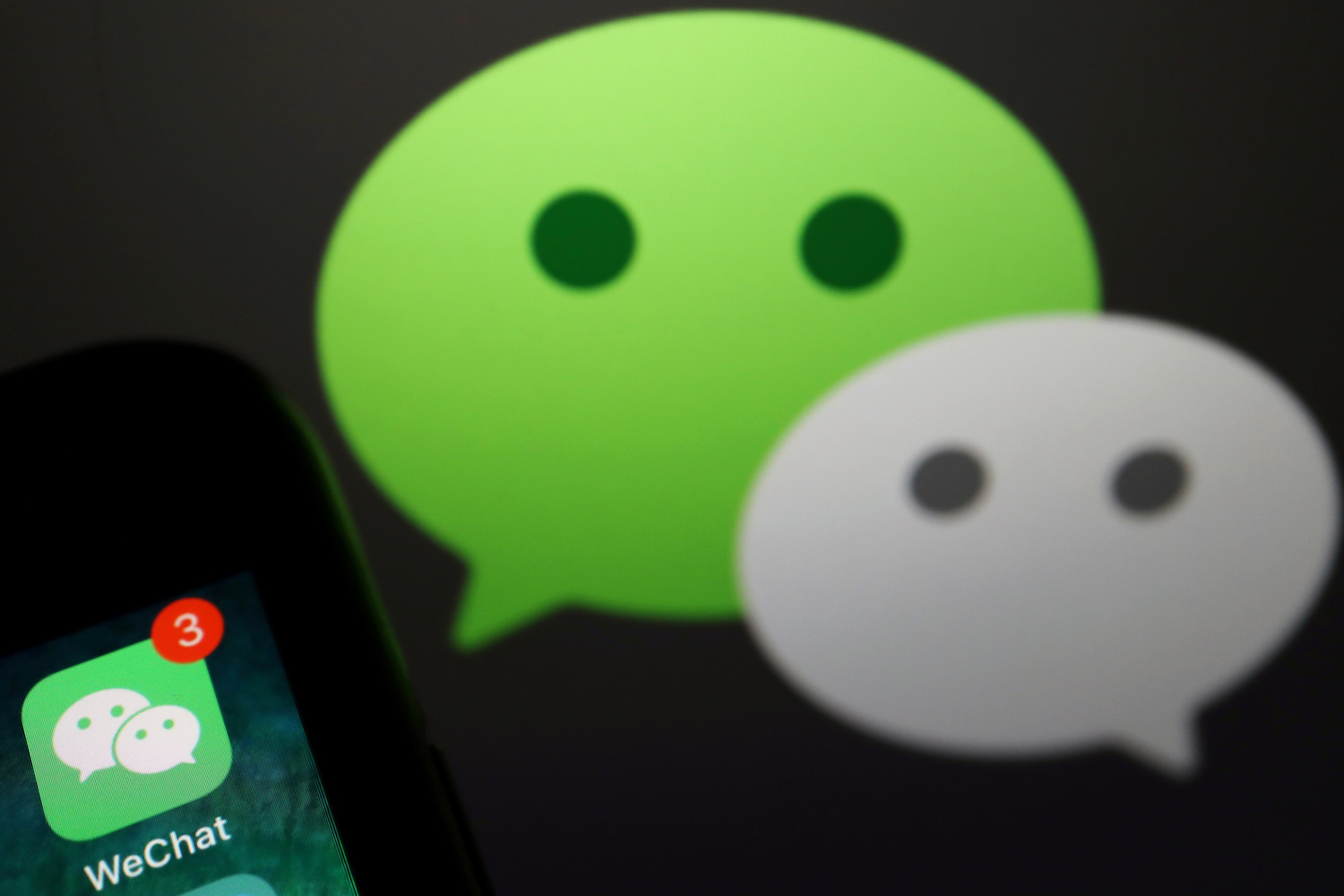(ATF) China’s government media such as China Reference News and state TV say US President Donald Trump has extended his “magic claws” towards the Chinese company Tencent once again, saying that the WeChat application will be completely removed in the US in 45 days time.
This has made many American companies that are closely connected with the Chinese market very worried, as any such move will likely prevent them from operating normally.
An executive order signed by Trump on August 6 stated that because WeChat poses a “threat to the national security” of the United States, it will prohibit individuals and businesses in the US from conducting transactions with WeChat and Tencent 45 days from that announcement.
However, so far, the US government has not released specific details, nor has it specified what a “transaction” is.
Some analysts claim that Trump’s move is more like a bluff, because he has not given these details. This will cause concerns for sectors of society and prevent American companies from working normally, as well as interfering with normal exchanges between China and the United States.
But this is an application that is popular with many Americans – WeChat reportedly has 19 million daily active users in the United States. Trump’s move would likely cause them considerable inconvenience if it really goes ahead.
And many American companies are worried about this. WeChat is very important to Chinese people, as it is used for daily communication, payment and other functions. If Trump’s ban takes effect, it will cut off a channel of communication between Starbucks, Wal-Mart, Nike and other American companies and customers. This is obviously undesirable for American companies.
Among many American companies, Apple is most likely to be hurt the most. That’s because, once the ban is issued, Apple will have to remove the WeChat app from its App Store. And that could cause the tech giant catastrophic losses.
US companies concerned
The Wall Street Journal reported recently that many large domestic companies have expressed concern to the Trump administration about this. Sources have noted that Apple, Disney, Ford and other companies have held talks with the White House administration, and they have explained the consequences of proceeding with such a ban.
Chinese media has also reported that some WeChat users are already migrating to QQ, as a backup. QQ is a similar app also owned by Tencent. WeChat also quietly launched something called WeChat work, which addresses some of Trump’s concerns.
Chinese residents use WeChat to organise events in much the same way non-Chinese users would arrange an event on Facebook. And this is not necessarily a security threat.
A person familiar with the issue told Chengdu TV the goal of some Trump administration officials is likely to be stopping WeChat from being downloaded in the United States, rather than it being completely scrapped.
But Trump is likely to veto these decisions.
Other options
If there is no WeChat, analysts think the development of QQ will not be affected and the business of QQ “has not been affected much”.
If the ban goes ahead and users migrate to QQ, the main difference is WeChat is more developed as a social media outlet. QQ also focuses on social networking, but one of the biggest problems with QQ – which was developed for teenagers – is that its content is complicated. The characteristics of WeChat are relatively clear.
Die-hard QQ users say the app has other advantages. It has existed for a longer time than WeChat, and has a very stable user-base.
For consumers, more people are willing to use QQ because of its various features, such as making your voice sound like the chipmunks from the Disney cartoons, Chip n Dale. And many users have the numbers of their old classmates on the QQ application.
The international version of QQ operates under the same framework as WeChat. And as Tencent’s original flagship app, it has more functionality than WeChat.
But besides QQ, there are many other apps waiting in the wings, not least among them Baidu, which is China’s Google.
Ban on doing business with Tencent ‘very unlikely’
Chelsea Tam, a senior equity analyst at Morningstar Equity Research, said they regarded the threat of a ban on US companies doing business with Tencent as “very unlikely”.
“We believe the possibility of banning all US companies from conducting business with Tencent both inside and outside of China is very unlikely because of the much larger impact on US corporate interests,” she said.
They believed the Trump administration could expand its ban to include not just the WeChat US app but also Tencent’s apps in the US. Given the escalation of the tech war, this was “the most probable scenario”, and it “could affect up to 2% of Tencent’s revenue”.
The next most likely option, she said, was to forbid Apple and Alphabet from offering downloads and updates of WeChat in their global app stores, excluding those in China. “This could affect up to 5% of Tencent’s revenue, in our view.”
There were also implications in regard to the ownership of popular games, she noted.
“The expanded authority of the Committee on Foreign Investment in the United States to review certain non-controlling foreign investments in a US business that ‘maintains or collects sensitive personal data of United States citizens that may be exploited in a manner that threatens national security’ could lead to a forced sale of Tencent’s ownership in Riot Games, Epic Games, and Supercell. By our estimates, this scenario is the third most probable [outcome] but [would have] the largest impact on Tencent’s revenue at 6%.”























